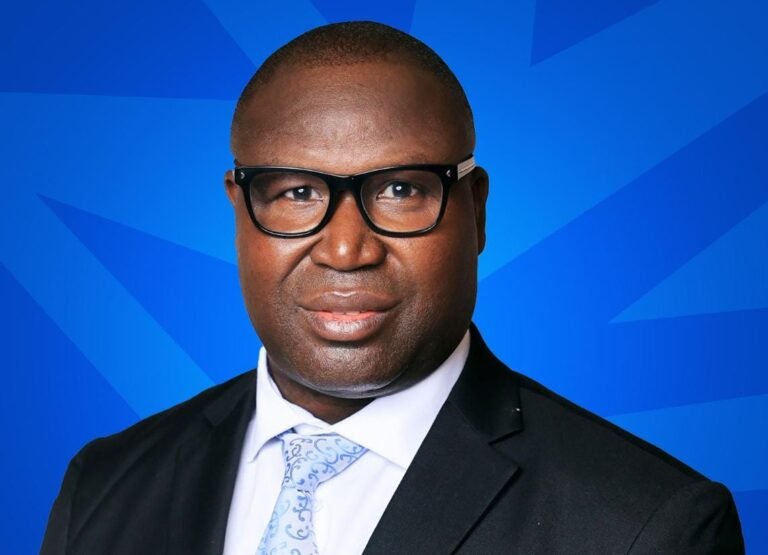
Godfred Dame, Attorney-General and Minister of Justice
The Community Court of Justice (CCJ) of the Economic Community of West African States (ECOWAS) has dismissed the suit challenging the controversial Agyapa Minerals Royalties Investment Agreement.
The suit was by filed by three non-governmental organisations, namely Transparency International, Ghana Integrity Initiative (GII) and the Ghana Anti-Corruption Coalition (GACC). The three NGOs dragged Ghana to the CCJ with a case that the Agyapa deal was susceptible to corruption, dominated by “politically exposed persons” and also violates the rights of Ghanaians to have permanent sovereignty over the country’s natural resources as provided under the African Charter on Human and People’s Rights.
They wanted CCJ to order Ghana to suspend the Agyapa deal and engage in proper consultation with Ghanaians in order to come up with a deal which, they said, would be in the public interest. Also, the applicants wanted the court to order Ghana to investigate all alleged acts of corruption associated with the deal, “and ensure that any alleged perpetrators are brought to justice.” and also engage in proper consultations
Hearing
Hearing the case in Holden in Abuja, Nigeria, on Monday, the court upheld Ghana’s economic interests, and emphasized the country’s right to pursue its development objectives.
The Court upheld the Attorney General’s preliminary objection against the 1st Applicant (Transparency International) on the basis that it was not a member of the ECOWAS States or a citizen of ECOWAS.
It further proceeded to hear the substantive matter, and dismissed the applicants’ case in its entirety, and refused to grant the reliefs sought.
Applicants relief
In court, lead counsel of the applicants, Olumide Babalola, argued that a declaration the Defendant’s actions towards entering into a relationship agreement with MIIF and Agyapa Royalties Ltd in respect of transactions surrounding the sovereignty of Ghana over its gold mineral resources in perpetuity constituted an interference with the rights guaranteed under Article 21(1) of the African Charter on Human and People’s Rights.
Babalola also argued that it was a violation of Articles 2(1) and (2), 3(1), 16(1) and 17(3) of the revised African Convention on the conservation of nature and natural resources (Revised Maputo Convention).
The Applicants sought an order restraining the Defendants (Ghana) from implementing the Agyapa deal and cancelling or terminating the already existing contract. He also requested an order mandating the Defendants, where it desires to raise immediate funds from Gold Royalties, to start the planning, impact assessment, consultations, and other preparations in line with its International Human Rights Law obligations.
They also wanted an order mandating the Defendant’s to undertake a thorough and impartial investigation into the alleged corruption offences and ensure that any alleged perpetrators are brought to justice and held accountable for any violations.
The applicants further wanted an order mandating the Defendant’s (Ghana) to immediately review its existing national laws and policies to provide adequate and effective safeguards against the violation of the right to free disposal of wealth and natural resources by public officials and public bodies.
Lawyer Babalola also prayed to the court to allow Ghana follow revised ECOWAS Treaties fundamental principles enshrined in Article 4(g) and (h) and ensure compliance with its Article 31. That, he stressed, will ensure that any entity with the function of sovereign wealth fund complies with the best international standards, such as the Santiago Principles and other consequential orders as this Honorable Court may deem fit to grant in the circumstance.
Giving its ruling, the court dismissed all the reliefs of the applicants. The full judgment will be available later.
Background
The Agyapa deal, which was initiated by the Ghanaian government in 2020, sought to monetize the country’s mineral royalties through an initial public offering (IPO) of Agyapa Royalties Limited. The agreement aimed to attract foreign investments and generate funds for infrastructure development, education, and other critical sectors. However, the deal faced extensive scrutiny and criticism from various stakeholders, alleging lack of transparency, accountability, and concerns of potential corruption.
Parliament passed the Minerals Income Investment Fund Act, 2018 (MIIF Act 978) with the key objective of maximizing the county’s mineral wealth for the benefit of Ghanaians, while ensuring that receiving royalties from gold mining companies was sustainable.
The law was amended to enable it to incorporate subsidiaries and use it as a special purpose vehicle (SPV) to do business across the world. The main subsidiary of the MIIF and holding company, Agyapa Royalties Investment Ltd, will be listed on the LSE, while its subsidiary, ARG Royalties Ltd, will be quoted on the Ghana Stock Exchange (GSE), both through IPOs.
The company will be responsible for managing 75.6 per cent of the country’s royalty inflow from the 12 gold mining companies that currently operate in Ghana, with four more expected to come on stream. That will enable the country to raise about $1 billion to finance mining concessions in Ghana and across Africa.
In November, 2020 President Akufo-Addo instructed the Minister of Finance to re-submit the agreements supporting the Agyapa deal to Parliament for the approval process to start all over again. That followed the corruption risk assessment submitted by Mr Martin Amidu, former Special Prosecutor, to the President.




